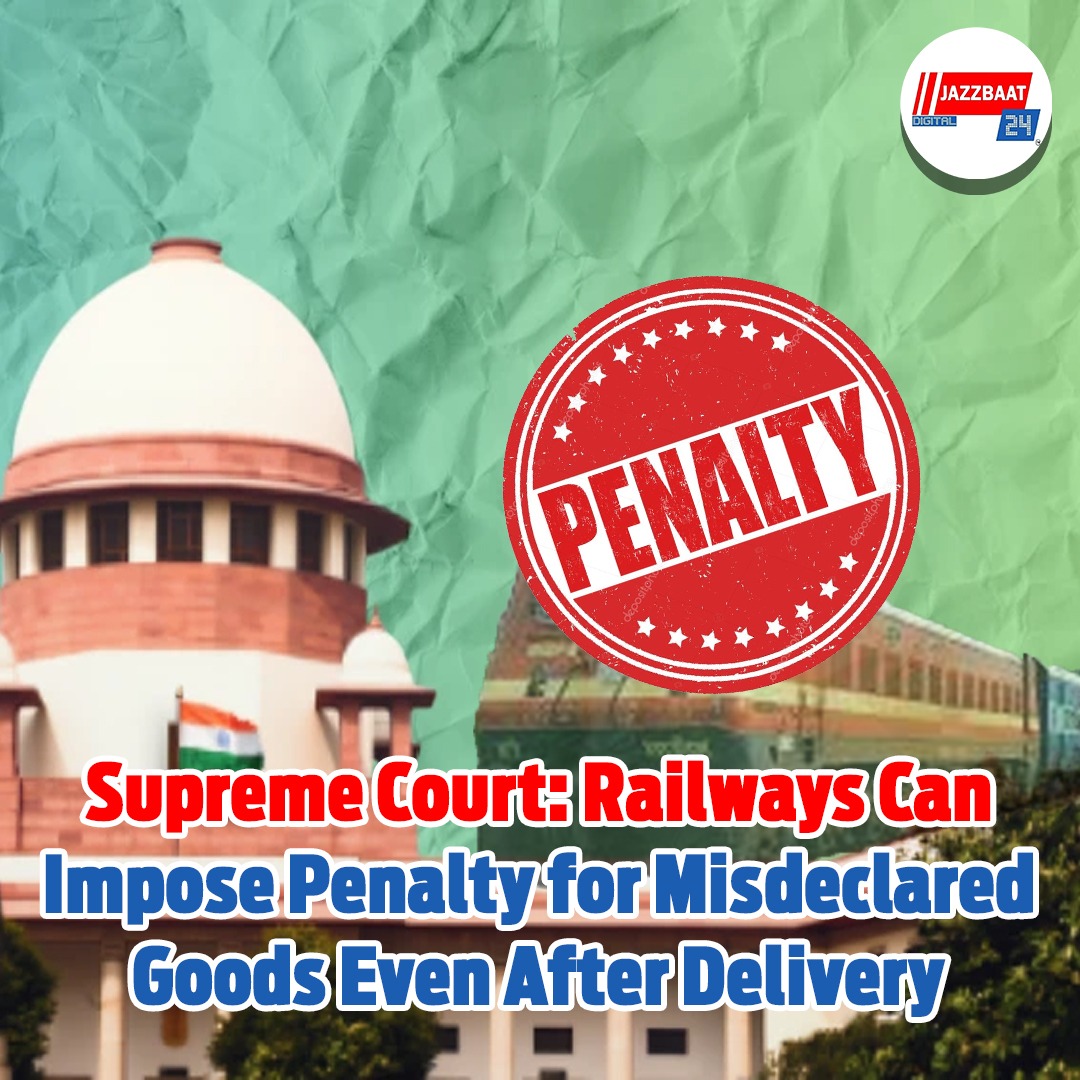
13 June, 2025:
The Supreme Court recently held that under Section 66 of the Railways Act, 1989 (“the Act”), the Railways can impose a penalty for misdeclared goods even after the delivery of the consignments.
A bench comprising Justices Sanjay Karol and P.K. Mishra set aside the Gauhati High Court's ruling, which had held that penal charges could not be levied after the delivery of goods. The Supreme Court clarified that Section 66 of the Railways Act permits the imposition of such charges at any stage, as the provision does not prescribe a specific timeframe for raising such demands.
The Court was considering a batch of appeals filed by the Central government challenging a 2021 order of the Gauhati High Court, which had ruled that railway authorities are not entitled to recover charges for misdeclared goods once the goods have been delivered.
The issue began when Indian Railways imposed penal charges on several transport companies, including Kamakhya Transport Pvt. Ltd.—accusing them of misdeclaring the contents of their consignments. Between October 2011 and April 2012, the Railways issued four demand notices, claiming higher freight charges after discovering discrepancies between the declared and actual quantities being transported.
"It is borne from the above that a consignee/owner of goods/person having charge of goods who has brought goods for the purpose of carriage has to give the Railway authorities a written statement regarding the description of the goods, to enable them to charge the appropriate rate of carriage. Under sub-section (4), if the statement is found to be materially false, the Railway authority is empowered to charge the goods at the required rate. No reference is made to the stage at which such a charge can be made, i.e., either before or after delivery. Consequently, it can be seen that the legislative intent had to be, to permit levy of charge under this Section, at either stage and not at a specific one," the Court said.
The Court further distinguished the case from cases falling under Sections 73 and 78 of the Railways Act. These provisions allow the Railways to recover additional charges if a person loads goods in a wagon beyond its permissible carrying capacity. These provisions explicitly require the Railways to levy the additional charges before the goods are delivered.
The Court also rejected the respondents’ claim that the demand notices were not genuine, observing that no evidence had been led to dispute their authenticity.
Allowing the appeals, the Supreme Court held that the Railway authorities acted within their powers under Section 66(4) and restored the demand notices.